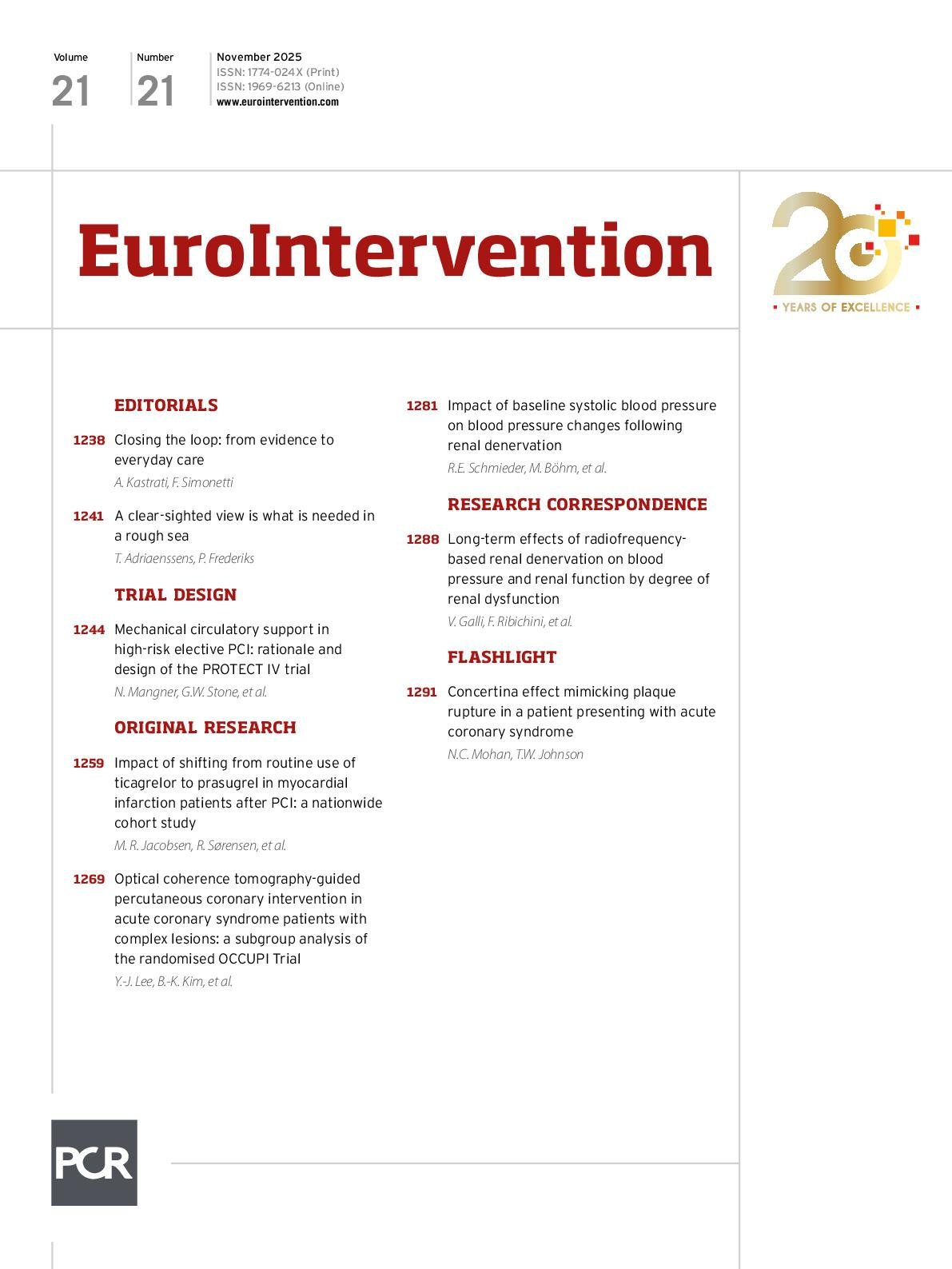Abstract
Coronary artery disease (CAD) is the leading cause of heart failure with reduced ejection fraction (HFrEF). Coronary artery bypass grafting (CABG) improves long-term mortality in HFrEF. Percutaneous coronary intervention (PCI) is often performed as an alternative to CABG in patients at high surgical risk. However, in patients with HFrEF and limited myocardial reserve, PCI may result in haemodynamic instability, increasing risk and precluding optimal revascularisation. Mechanical circulatory support (MCS) during high-risk PCI may enhance haemodynamic stability during the procedure and enable complete revascularisation. We thus performed the PROTECT IV trial to determine whether PCI with routine use of the Impella CP microaxial flow pump improves early and late outcomes in patients with HFrEF and complex CAD compared with PCI with or without use of an intra-aortic balloon pump (IABP). PROTECT IV is a prospective, multicentre, randomised, parallel-controlled, open-label, superiority trial with an adaptive design. Patients with complex CAD and left ventricular ejection fraction ≤40% (n=1,252) deemed at excessive surgical risk for bypass grafting by the Heart Team will be randomised in a 1:1 ratio to PCI with Impella CP versus PCI with or without an IABP. The primary endpoint is the composite of all-cause death, stroke, myocardial infarction, unplanned clinically driven revascularisation, durable left ventricular assist device implant or heart transplant, or other hospitalisation for cardiovascular causes at 3-year follow-up, with at least 1-year follow-up in all patients. Prespecified substudies will evaluate the impact of MCS on renal function, the procedural role of right heart catheterisation, and the utility of myocardial viability assessment. The PROTECT IV trial will determine whether routine MCS with Impella CP during high-risk PCI improves the prognosis of patients with complex CAD and HFrEF.
Sign up for free!
Join us for free and access thousands of articles from EuroIntervention, as well as presentations, videos, cases from PCRonline.com

